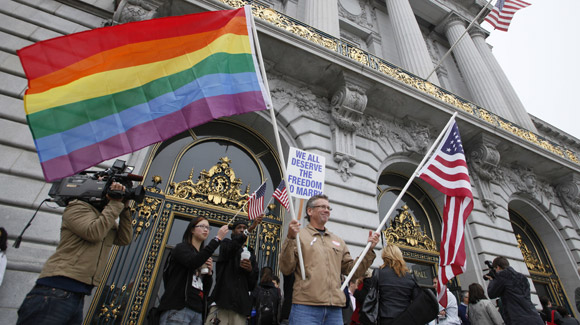
A federal appeals court said Thursday that videotapes covering the historical Perry v. Brown tiral surrounding California’s Proposition 8 ruling would be kept private, thereby overturning a lower court decision that would have allowed the tapes to be released publicly.
The announcement comes as a victory for supporters of Proposition 8, serving meanwhile a disappointment for LGBT activists and allies.
A three-judge panel of the U.S. 9th Circuit Court of Appeals made the decision to keep the tapes private in wake of a promise made by U.S. District Chief Judge Vaughn R. Walker that they would only be used in court according to reports at the Los Angeles Times.
“Litigants and the public must be able to trust the word of a judge if our justice system is to function properly,” the panel said.
Thoedore Boutrous, an attorney for Proposition 8 challengers, expressed disappointment over the ruling but also added that the legal team is “looking at the big picture” for an eventual overturning of the same-sex marriage ban.
“It speaks volumes that the proponents of Proposition 8 are so insistent about concealing the videotaped record of this historic trial,” Boutrous said.
The 9th Circuit panel is also determining whether Proposition 8 is constitutional – a decision which will likely be appealed to the U.S. Supreme Court.
Adam Bink, Director of Online Campaigns for Courage Campaign, explains the detriment of the ruling in an editorial at the Huffington Post:
In choosing to keep the recordings under seal, the 9th Circuit has unfortunately dealt a blow to transparency in the courtroom. There is no new information contained in the recordings that is not already part of the public record. The trial’s full transcript can be found online, and has been reenacted by both celebrities and regular citizens alike who wanted to spread the word about this historic trial.
Rather, the recordings contain something more powerful and more intangible than mere words. They contain body language, tone of voice, and the many other verbal and non-verbal cues that we use to communicate with one another. Because the 9th Circuit has chosen to keep the recordings sealed, the public may never have the chance to experience the Perry trial in all its complexity. And that is a loss for all of us.











